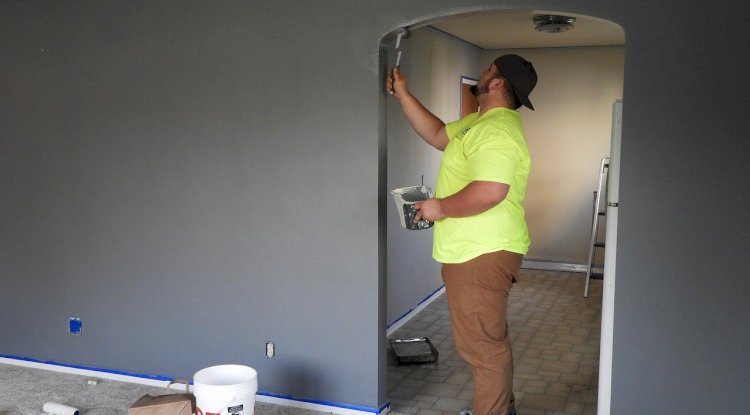Status of tenant and landlord courting in India
Status of tenant and landlord courting in India

Table of Contents
- Introduction
- Emergence of the need for hire manipulate and Statutes globally
- Emergence of lease manage in India
- Is arbitration allowed below the Rent Control Act
- Transition from rent control to model tenancy
- COVID-19, pressure Majeure and Rents
- Conclusion
- References
Introduction
On the very onset, on this context, the first requirement is there be a premise this is being let loose. The landlord or owner is someone who has received this immovable assets both through inheritance or via purchase or gift. The owner is the individual or entity to whom rent is paid.
A tenant is the only who can pay the lease to the owner in change for occupying the property. The relationship among an owner and tenant in India is frequently idea of as contentious and opposed, but fundamentally it is driven by using want.
No dating begins with acrimony, and it's far, therefore, paramount to set the covenants in order to be accompanied via both celebration so that it's far fine, fruitful, and economically remunerative, for a balance has to be struck, and the pendulum need to not swing too some distance toward either party as the equal man or woman who is a landlord could also be a tenant in every other city or every other region within the equal town or town.
A famous UN look at carried out in 1986 estimated that almost 42% of the metropolis dwellers worldwide were tenants, with fast urbanization that has ensued, specifically in India and increasing migration from rural regions to cities for better prospects, this quantity could have visible a big growth and a majority of these migrants are tenants even though the facts from the 2011 Census conducted in India across the top 6 metros indicated that 60% of the citizens stay in residences that they owned.
Emergence of the need for hire manipulate and Statutes globally
Hire control imposes a legal limit as to what the most rent can be, or in other phrases, it caps the rent as seen match underneath the policies set forth by the country.
At some stage in global warfare I, there was a extreme shortfall of housing in ny because the resources required for production had to be diverted for the wartime efforts; construction was stalled totally throughout and after the primary international warfare. Hence, no new inventory of housing became arising. On the same time, the call for turned into unmet, and the residence vacancy quotes went to a nadir of a fragment of one%, which despatched rents skyrocketing, and extensive protests ensued, accusing landlords ‘exploitative’ practices, which brought about the the big apple nation Legislature passing a ‘rent control software’ which could offer relief from baseless evictions and keep rents in take a look at.
This program became strictly a wartime measure and expired in 1929 while the state of emergency became over. It hooked up the concept of lease manage and become revived for the duration of the second one world conflict, and exists even these days in some shape.
Emergence of lease manage in India
In India, just like the USA, the start of the decision for rent controls is also copied to the first world war as inflation became surging, and tenants are in misery. The lease manipulate Act, 1918 was exceeded within the Mumbai Presidency to be able to preserve rents inside cheap limits, and the same Act become in addition enacted in city in 1920. The Old Delhi Act turned into born in 1938 below the defense of India policies on the onset of the second global war and become meant as a short lived live given the exculpatory occasions. However, what started as a transient comfort degree endured, and a primary rent manage Act turned into exceeded in 1948 by suggests that of impartial India and have become inscribed out as an exception to the transfer of assets Act, 1882. as a result of the availability of housing may be a state challenge beneath the Indian constitution, all states are consequently obligation-bound to enact and enforce rent manage as they see match creating it a bog for anyone attempting to turn over via the intricacies of the Acts handed by specific nation Legislatures of India.
The underneathlying principle of those enactments are:
- Protection of the tenant from eviction by the owner unless it's authentic and under specific conditions as prescribed under the Act.
- To line the honest or customary rent so as to stop the owner from charging rank rents.
For eviction under a written agreement occupancy or lease agreement, as per Section 106 of the Transfer of Property Act, 1882, the owner will file a notice for possession from the tenant while not giving any specific reason once giving a fifteen-day notice.
Underneath the Rent management Act, a totally totally different set of standards are place forth, whereby a landowner will file for eviction:
- Willful default in payment of rent.
- Subletting while not the consent of the landlord.
- Breach of any conditions of occupancy like unlawful conduct or inflicting disturbance to different occupants of the building.
- Denial of title by the tenant thanks to malicious intent.
- The tenant isn't occupying the building.
- Landowner seeking possession for self with real reasons.
- Eviction thanks to demolition or reconstruction required due to the deteriorating condition of the building, once the reconstruction of the building, the owner is liberated to use and revel in its property with the sole exception to the present in province Buildings (Lease, Rent and Eviction) management Act, 1960 whereby the landlord should provide the tenant the primary right to rent the reconstructed building at the then-prevailing honest market rents and providing the tenant chooses to not exercise his right can the owner occupy or unleash the building.
The Rent management Act shall not apply in some instances, namely:
- Property that's let out to personal limited company and Public Ltd. firms with a paid capital of Rs one large integer or more.
- Property let out to Government firms or PSUs, Banks, or any such Corporation that has been established underneath any Central or State Act.
- Property that is let out to Foreign firms or International Agencies.
- Some States have conjointly exempted Temples, Charitable Trusts and Wakfs.
The thought of Rent management is frozen in socialism, and it massively favors the tenants.
No unfastened marketplace
Rent management destroys the political economy of free markets because it interferes with the market dynamics of demand and supply, thereby preventing correct worth discovery. Any long distortion of rents is quite} harmful as it destroys any incentive for anyone to contemplate building homes for rental housing, thereby exasperating the very downside it's been created to solve. by artificial means capped rents additionally adversely impact Municipal Revenues as property taxes are closely coupled to rents.
Antecedent test
Given the problem involved in taking the corrective steps, it's miles prudent to ensure that the landlord does his due diligence on the heritage of the tenant earlier than letting out the property:
- Identification test, so that it will include realize your purchaser (KYC) files;
- Credit score score test, to verify beyond patterns of economic conduct;
- Bank assertion showing earnings’s credit score with income slip or letter on enterprise’s letterhead or reproduction of ITR for the past 2 years.
- Police verification is compulsory and a safety measure whereby the district police keep a file of the people who've migrated to one of a kind cities from their local places to pursue research, organizations, jobs, etc. This verification’s number one reason is to preserve music of criminals and delinquent factors of society.
Honest lease, not so truthful
Before we glance into the statute for crucial the fair rent, it's important that the owner sets a sensible rent once taking into consideration the rents that different comparable properties within the neighborhood are fetching. Another metric which will be a useful indicator is rental yields that tend to be in the 2-3% vary of residential properties.
Let’s currently check up on an instance of however the legislation publicised acquired a good rent. The city Rent Act of 1948, for instance, outlined the fair rent for a non-public building because the rent at which the premises were disclose Sep 1, 1940.
Also, the rent management statutes in Asian country don't acknowledge sub-tenants and licensees to estimate honest rent. The Act operates as ‘in rem’ and not ‘in personam.’ The fair rent determined in respect of a building is thus influenced solely by its capital value.
This method is somewhat capricious and nearly always favors the tenant albeit the owner also can approach the rent controller for fixation of the rent.
Is arbitration allowed below the Rent Control Act
No, the disputes below ‘unique’ rent manage Acts aren't arbitrable as command through the Hon’ble ideally suited court Judgement in Vidya Drolia & Ors. v. Durga Trading Corporation – II . that ordered out the factors on that arbitrability of disputes are going to be determined. The court docket held that almost all effective chartered residences that are exempted beneath lease manipulate provisions could be ruled beneath the switch of belongings Act’s provisions and will be arbitrable.
Transition from rent control to model tenancy
The planned Model abidance Act aims to ascertain a framework that may utterly overhaul the rental market within the country. Let’s take a glance at the provisions that are proposed in the Draft Model abidance Act, 2020:
- No building or premises is rented while not associate degree agreement in writing on reciprocally in agreement terms;
- The Act shall apply to each residential and business tenancies;
- It applies everywhere India;
- Rent needs to be fastened by mutual agreement between landlord and therefore the tenant.
- Can apply solely prospectively, and the existing tenancies shall still be ruled by existing rental laws of the States/UTs.
- Provision for a fast-track quasi-judicial mechanism for judgment of disputes.
- Shall apply to any or all tenancies with no financial threshold.
- Agreement terms shall be binding upon successors of the owner still because the tenant for the remaining amount as per the abidance agreement.
- Sub-letting isn't allowed while not the execution of a supplementary agreement between the owner and therefore the tenant.
- If the abidance term ends at the time once the world whereverin the rented premises is found experiences any act of God event, the landlord shall permit the tenant to continue occupancy for one month from the date of the surcease of such event on constant terms as that of the prevailing tenancy deposit for residential buildings should not exceed 2 months rent, and within the case of non-residential establishments, it shall be as per the terms of abidance agreement subject to a most cap of six-month rent.
- The safety deposit shall be came at the time of seizing vacant possession of the premises by the owner once adjusting for any dues.
- Recovery of possession by the landlord on sure conditions.
- If the tenant fails to vacate the property after the lease ends, the landlord is entitled to double the rent for the primary 2 months so fourfold the monthly rent thereafter.
Thus, it's expected that succeeding state tenancy laws supported the Draft Model abidance Act, 2020 can start a replacement paradigm to confirm transparency for landlords and tenants. The provisions of the Model Act highlight the importance of a rent agreement, dead between the parties on reciprocally in agreement terms, thereby minimizing the chance of disputes, and just in case of any dispute, it is quickly resolved through the dispute redressal mechanism as prescribed within the planned legislation.
COVID-19, pressure Majeure and Rents
It would be an irony that COVID-19 was Associate in Nursing unexampled event that plunged the whole world economy into a lockdown, many tenants dead abandoned properties they were occupying, and lots of others who lost their jobs were unable to pay their rents and {also the} government also issued its consultative that enclosed an eviction moratorium and relinquishment of rents. This has place the landlords in nice jeopardy, particularly those for whom the house or building was their sole supply of income. This quandary emphasizes the necessity for a disaster clause that has pandemics and government-mandated shutdowns and acceptable redressal mechanisms that may embrace moratorium or relinquishment or reduction of rents payable.
Conclusion
For any relationship to be long and fruitful, it have to be compelled to be underscored by mutual respect, equity, and fairness. Some landlords tend to seem down upon tenants as they feel they need a better rank than Tenants. Tenants kind an outsized a part of the popular vote bank and are armed with the Rent management Act provisions that offer them tremendous leverage during this relationship. it's powerful to enumerate a landlord’s troubles that reach from taxes to rising maintenance and renovation costs; the helplessness of a landowner is capably delineated by a celebrated maxim, “Fools build houses, and wise individuals sleep in them.” There was a shortage of rental housing thanks to the primary and Second World Wars, and therefore the governments at that time, as a brief measure, instituted Rent management Statutes to make sure the balance of power between tenants and landlords, things aren't any longer an equivalent and the time has return to overhaul the archaic provisions of Rent management completely, and the Model occupancy Act may be a step within the right direction.
References
- Fundamentals of Rent Control Legislation in India along with Rent Acts of All States, 1984, by R C Kochatta.
- The Bombay Rent Control Act,1918.
- The Transfer of Property Act, 1882.
- The Maharashtra Rent Control Act, 1999.
- The West Bengal Premises Tenancy Act, 1997.
- Vidya Drolia & Ors. v. Durga Trading Corporation – II.
- The Delhi Rent Act, 1995.
- Draft Model Tenancy Act, 2020.
- The Tamil Nadu Buildings (Lease and Rent Control) Act, 1960.
- The Karnataka Rent Control Act, 2001.
- The Great Rent Wars: New York, 1917-1929, by Robert M. Fogelson.
- Rent Control in Developing Countries: A Framework for Analysis, 1986, by Stephen Malpezzi and C. P. Rydell.
Also Read: What is Rent Control Act: Rental Agreement, tenant and landlord's rights
What's Your Reaction?




















